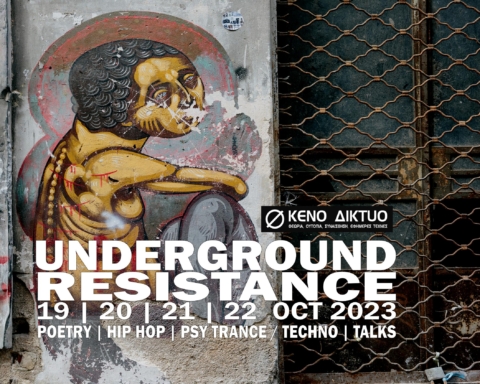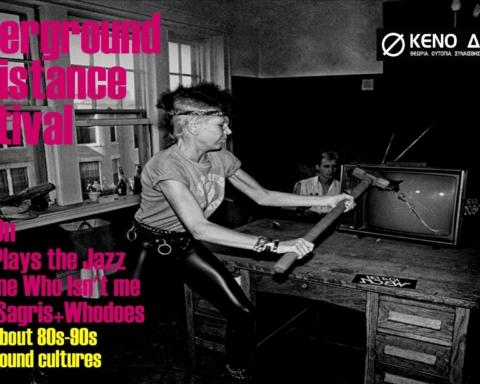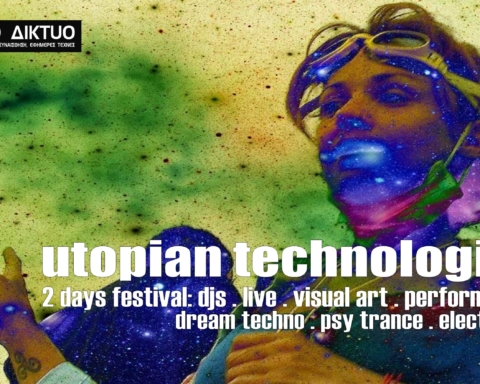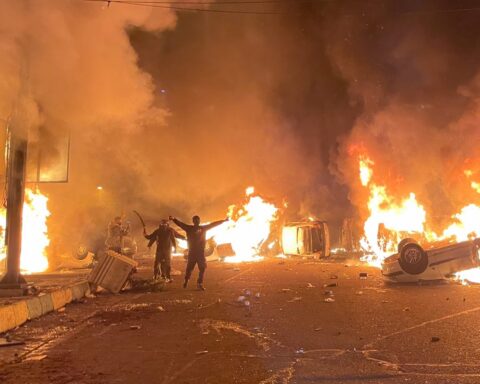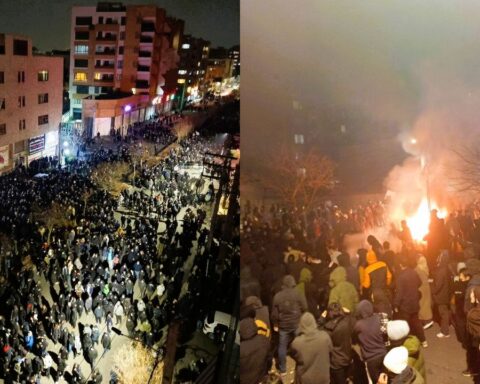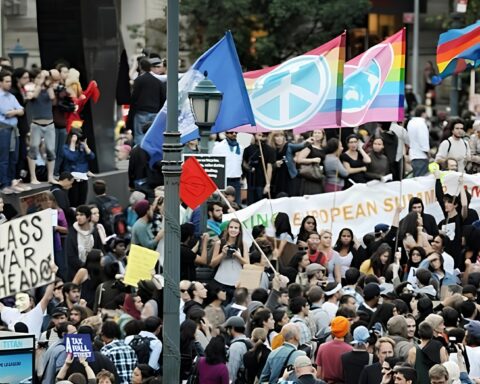Your sonic journey from Blumenkraft to Hiraeth spans decades of evolution. How would you
articulate the thematic and technical threads that unify your work, even amidst its
transformations?
I’m always trying to do the same thing, just with different stuff. In the beginning I had one
monophonic synth, a Roland SH101, and I set out trying to make sounds I liked. Forty years later, the central aim remains the same, to make sounds I like. [I still own the SH101].
Having collaborated with icons like Brian Eno and The Orb, what insights or paradigms did these
encounters offer you, and how did they inform or reshape your creative philosophy?
My interaction with both was minimal. Hours at most. With both I just happened to be the
engineer standing beside the mixer when they decided to do a thing.
The most important lesson I learned from watching Eno produce a band was that he doesn’t
show up in a magic cape, on a unicycle, waving his magic Brian Eno wand about the room
and infusing everything with magic Brian Eno dust.
He turns up at 8:00am sharp, ready and keen to do some music today and if no other band
member turns up because they were all drinking and shouting until 4:00am, he just gets on with it himself. He puts in a full day and never phones it in. Everything is important, anyone can contribute an idea. He works really hard and likes to focus. That’s his secret.
I totally stole it from him.
Your music often transcends genres, described as psychedelic dub with profound atmospheric
depth. What core ideas or existential questions drive your compositions?
Not genres. I don’t dedicate any energy to thinking about genres. The core idea is to make sounds. I like and combine them into layers and patterns. At some point they feel complete and I stopworking on them. That’s when you hear them.
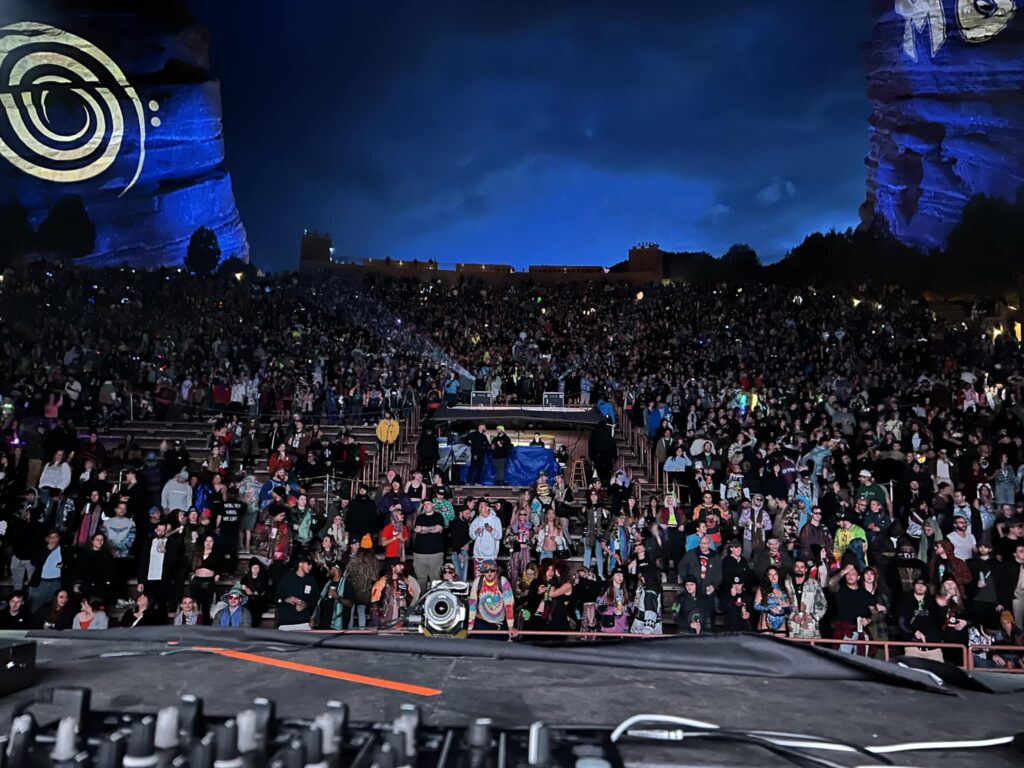
Festivals like Glastonbury and Glade are renowned for their transformative atmospheres. How do
you tailor your live performances to channel and harmonise with the unique energy of such events?
I pick an opening song and play it. Halfway through that I’ll get the urge to play something I think will sound good after it, so I’ll play that next. I keep doing that until somebody asks me to leave.
The concept of Hiraeth encapsulates a deeply ineffable longing. How did this philosophical
sentiment manifest sonically in your latest album, and what personal resonance does it hold for you?
I think it’s my age. I’m pushing 60 and the world I find myself living in is not the one I was
promised when I was younger. I’m nostalgic for a time when selling photos of their feet on the internet wasn’t a legit way for women to pay their way through college.
As an artist whose medium is interwoven with technology, how do you view the interplay between
human intuition and digital precision in music creation?
I learned to be a sound engineer during the age of tape and transistors. You could edit tape but only in emergencies and it wasn’t guaranteed not to destroy your master. The name of the game was capturing performances because there wasn’t much you could do to fix things afterwards.
Being able to microscopically edit absolutely every aspect of every sound has made a lot of
incredible techniques possible and I’m really happy not to have to discard otherwise brilliant vocal takes just because the third word of the phrase is a bit out of tune. However, the steepest portion of the curve was learning that just because I can purify everything down to sample resolution doesn’t mean I should.
Your music seems to be a dialogue between diverse cultural lexicons. How do you navigate the
delicate balance of drawing inspiration from different traditions while preserving authenticity?
When I use a sound that I’ve found it’s because I’m attracted to the sound itself, nothing more. The only role it needs to perform is to sound good in combination with what is around it. I’m attracted to novel sounds which originate from places I’m unfamiliar with but as far as I’m concerned I’m only ever sampling the sound, not the culture. In that respect, I only need to be authentic to myself.
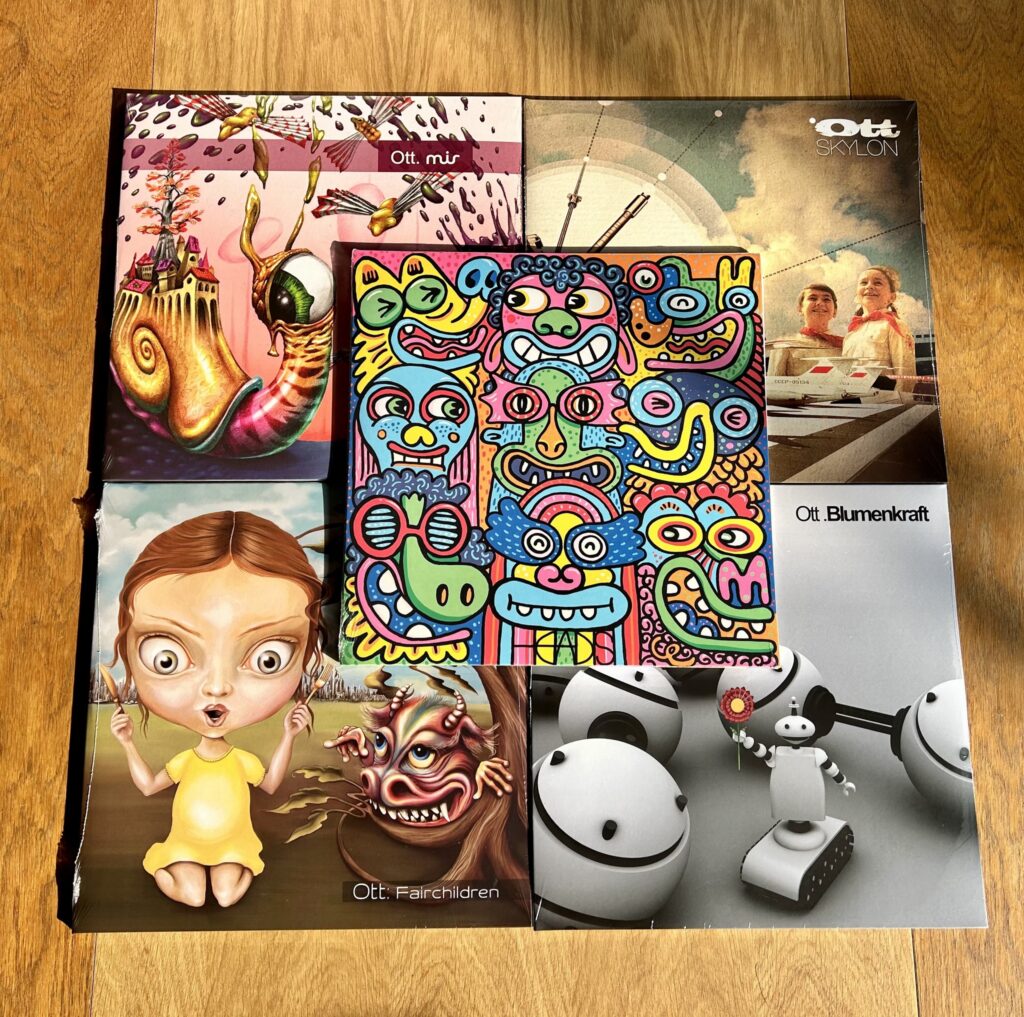
With such an expansive discography, what unexplored realms—be they sonic, conceptual, or
collaborative—still beckon you forward?
Oh, it’s infinite. I’ve barely scratched the surface. I will definitely be found dead one day, slumped over my mixer, patch cables draped over my shoulders.
I’m not hugely collaborative though. Working alone is my greatest luxury.
Your music inspires profound emotional reactions. How do you perceive the dynamic between
creator and listener, and do these responses ever feed back into your artistic process?
I get emails from people letting me know they’re still alive because of my music, stopped using opioids or healed their relationship with their parents or kids. I read YouTube comments where somebody was bumming-out horribly on acid but saved the evening with a playlist of my stupidsongs. It’s why I put in the 18-hour days. In an industry that is both abundant with opportunities and rife with challenges, what principles or practices would you impart to burgeoning talents navigating the electronic music scene?
Only do it because you love it. It’s a terrible get-rich-quick scheme and most of the people who appear successful have rich parents. If you find yourself trying to fulfil the requirements of some genre or other, give up, find another hobby. The object is to find your niche and occupy it as fully as you can, not deliberately set out to blend in behind everyone else. If you do it well enough people will try to copy you.
Your work often feels like an exploration of temporality, blending cyclical patterns and evolving textures. How do you conceptualise time when structuring your pieces?
I discovered I have the ability to time travel and I spend my time in the studio flitting between the different ages of my life, making the music from the perspective of 10 year-old me or 26 year-old me or 40 year-old me. 56 year-old me is the engineer in charge because I have skills now which I didn’t have at 30, but I find myself able to tour about my inner-landscape, occupying the memories and imagination
I possessed at any age, at will. “Unit Delta Plus” was made by 15 year-old me using mainly equipment available in 1983, in 2012. “Harwell Dekatron” was made by 27 year-old me on equipment available in 1995, in 2012.
Amidst the saturation of modern soundscapes, your music respects the potency of silence. How
do you craft these voids as integral components of your compositions?
A lighting engineer once told me: “Blackout is a colour too.”
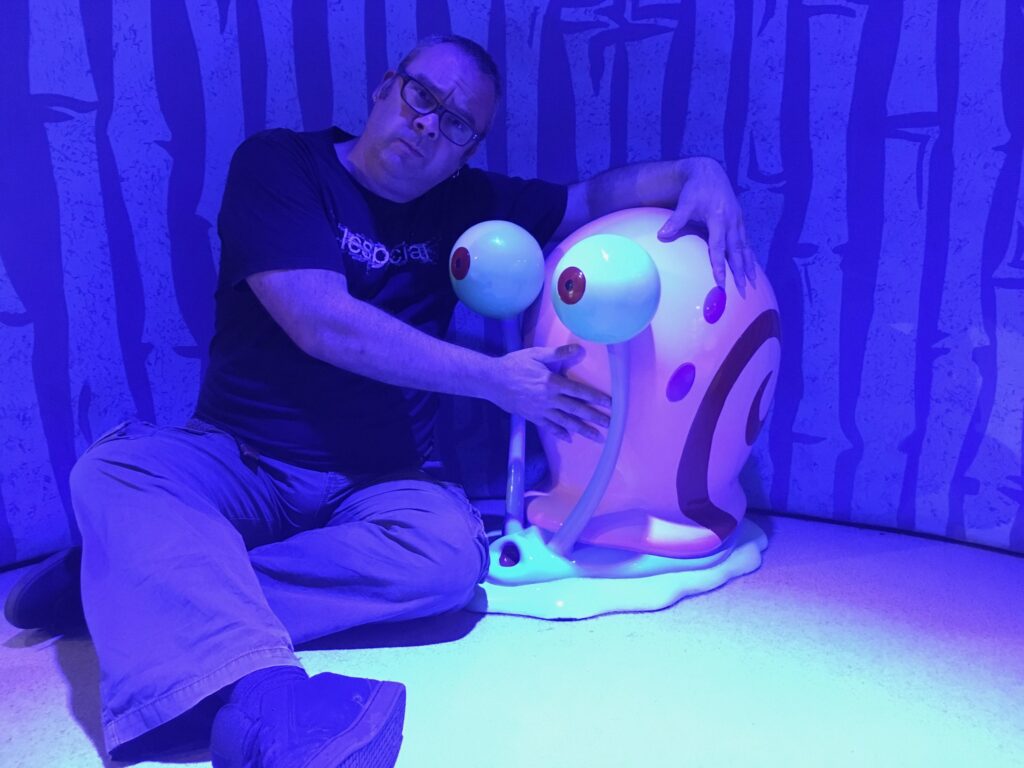
“Psychedelic” is a term frequently ascribed to your music. Beyond the aesthetic, what does this
descriptor mean to you in terms of artistic intention or human experience?
To me “psychedelic” just means “brain-fun”. FPV drone-flying is psychedelic. Swimming in the sea is psychedelic. Sticky-toffee pudding is psychedelic, flashing lights, poetry, weed, mushrooms, synthesisers, acid, snowboarding, fireworks, motorbikes, all psychedelic. Never try to do them all simultaneously.
Your compositions often evoke vivid, wordless narratives. How do you channel emotion andstorytelling through sonic design alone?
I don’t. I provide backdrops, half-contexts, suggestions and triggers. The listener does the rest. As a listener, where do your tastes lie? Are there specific genres or artists that offer you inspiration or a sense of refuge, even if they diverge from your own style? I don’t tend to listen to music very often outside the studio. I don’t often listen to music in the car and if I do it’s “Hey Siri: Play “Boards of Canada”…”
Otherwise I have a huge playlist of people like Ivor Cutler, Robert Wyatt, William D Drake, Hatfield and the North, Steve Hillage, Ian Dury and the Blockheads, Cardiacs, The Stranglers, The Sea Nymphs, Pink Floyd, etc, which I use to decorate the blandness of airport hotels. Stuff which temporarily cures homesickness and hiraeth.
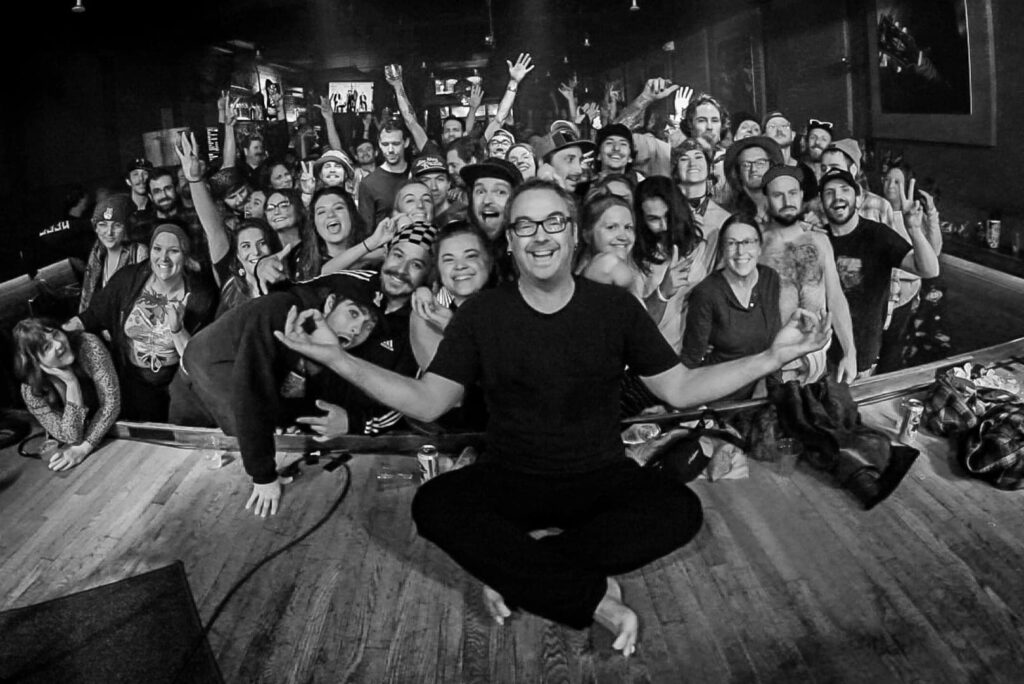
What do you anticipate for the trajectory of electronic music? Are there emerging movements or
technologies that excite you or that you see redefining the field?
I favour machines which haven’t changed fundamentally in design since 1968. I’m at least forty years behind the fashion curve [currently obsessed with Yazoo – Upstairs at Erics] and I never, ever listen to contemporary electronic music. I’m definitely not Future Predictions Guy.
What do you believe about love? It is a question with which I have been closing my interviews for
the last 36 years!
The most powerful force available. The centre of everything. The actual answer.
The only good reason to do anything. Always wins.
Thank you very much for your time
:0]
____________
Yannis Raouzaios is a writer, film critic and memeber of Void Network
More info about OTT live in Athens here: https://dtp.events/events/

